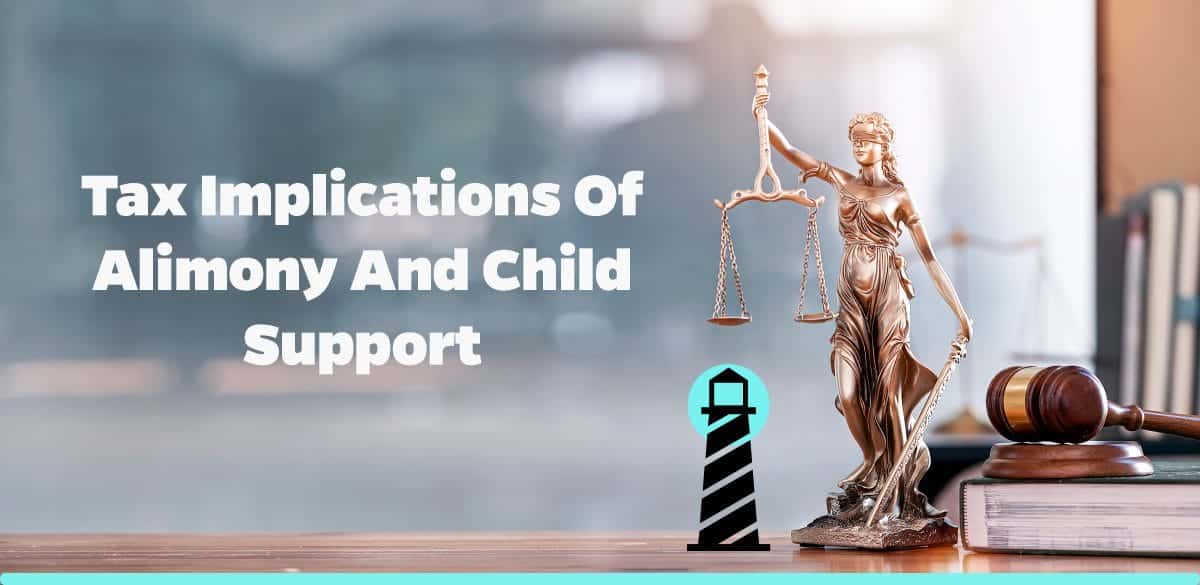Being granted tax relief can be life-changing. However, if you are engaged in alimony or child support situations, navigating the tax implications can be challenging. Understanding the labyrinth of rules around alimony tax implications is crucial to avoid serious financial pitfalls. In this guide, we share the essential information you should know about these complex issues.
Alimony and Child Support Defined
Alimony, also known as spousal support, is a payment one former spouse makes to the other after a divorce. These payments are intended to help the lower-earning spouse maintain a similar lifestyle to that enjoyed during marriage.
Child support, on the other hand, is paid by the noncustodial parent to the custodial parent to contribute towards the child’s living and education costs. It’s important to note that alimony and child support are considered separately in the matter of tax implications.
Tax Implications of Alimony
Alimony impacts both the payer and the recipient in different ways. The tax rules regarding alimony payments changed significantly with the Tax Cuts and Jobs Act (TCJA) of 2017. For divorces finalized on or after January 1, 2019, alimony payments are no longer deductible for the payer, nor are they considered as taxable income for the recipient. This change reversed a long-standing rule that the IRS had applied.
- For the payer: Alimony payments ceased to be a tax-deductible expense from January 1, 2019. This means that the payer is taxed on the income before paying alimony.
- For the recipient: Since 2019, alimony payments received are not considered taxable income. The recipient, therefore, does not have to pay tax on this income.
Tax Implications of Child Support
Contrary to alimony, child support has no direct tax implication for either party. The payer does not receive a tax deduction for child support payments, and the recipient does not include these payments in their taxable income. This is regardless of when the divorce or separation agreement was finalized.
- For the payer: Child support payments are not tax-deductible. The payer pays income tax on the income before making child support payments.
- For the recipient: Child support payments are not considered as taxable income. Hence, the recipient does not include them in their gross income.
Key Concerns When Navigating Taxes
It’s paramount to distinguish between alimony and child support payments when calculating your taxes, as each has its tax implications. Another area that often causes confusion is the tax treatment of alimony payments for pre-2019 divorces. In cases where the agreement was finalized before January 1, 2019, the older rule applies – the payer can deduct the amount, and the recipient needs to declare it as income.
To ensure accurate financial planning, it’s important to consult with tax professionals and understand the IRS guidelines on tax treatment of alimony and child support.
Maximizing Tax Relief with Brightside
At Brightside Tax Relief, we’re committed to making your experience with taxes as smooth and easy as it can be. We understand that navigating tax rules can be an arduous task, particularly when dealing with alimony and child support payments. Our team of tax experts endeavors to guide you through every step of the process, ensuring you understand the implications and receive any applicable benefits.
Financial planning is critical during and after divorce, from understanding potential alimony tax implications to claiming child support tax deductions. Our experts are well versed in the IRS regulations and keep up to date with any changes in tax law. This allows us to provide you with the latest and most accurate information, helping you to optimize your tax situation.
In conclusion, dealing with the tax implications of alimony and child support can be complex and confusing. However, armed with the right information and a team of dedicated tax professionals like Brightside Tax Relief, you can navigate this Area with more confidence and ease. Always remember that understanding the tax implications of alimony and child support can help protect your financial future.






